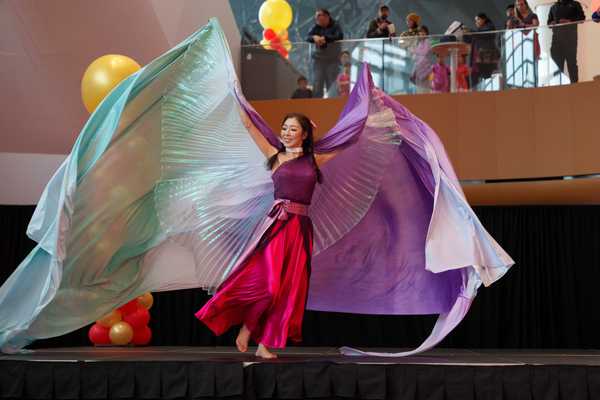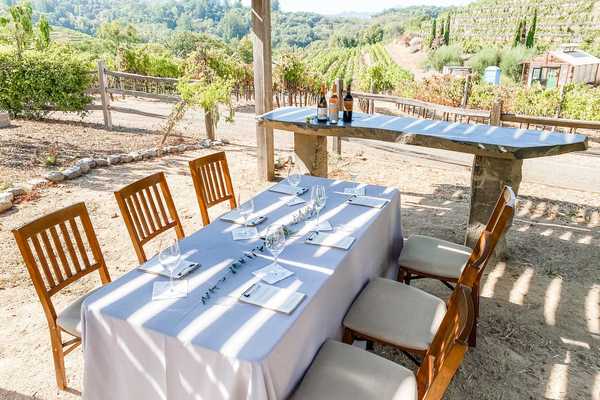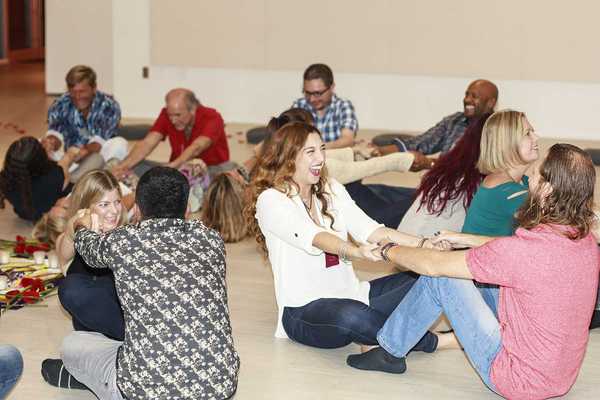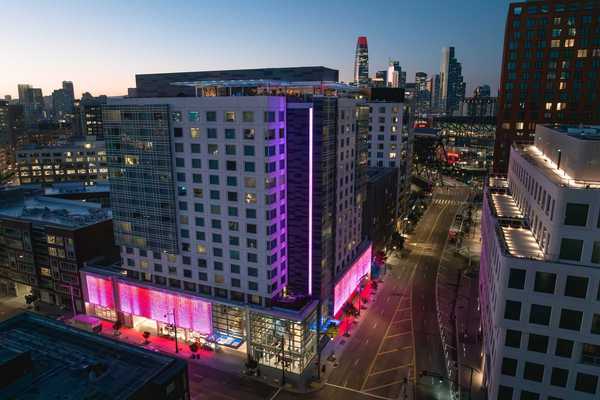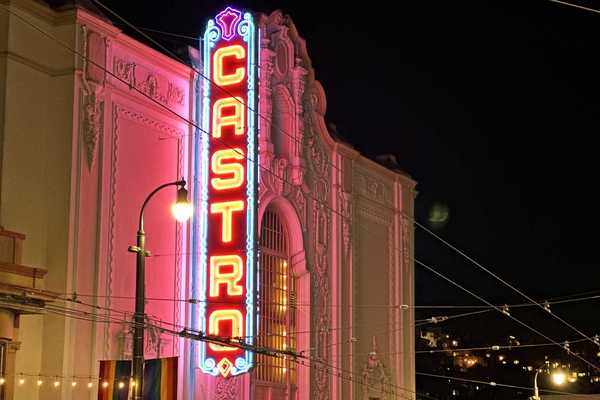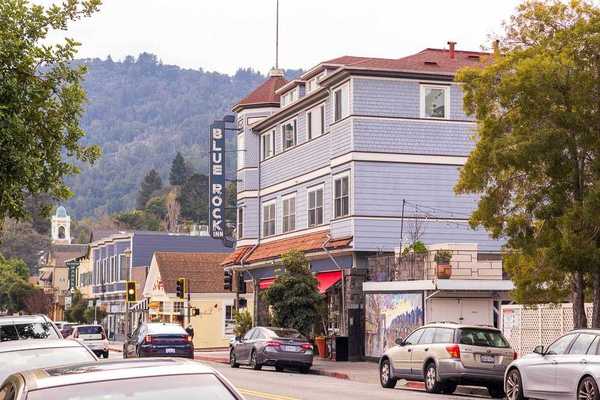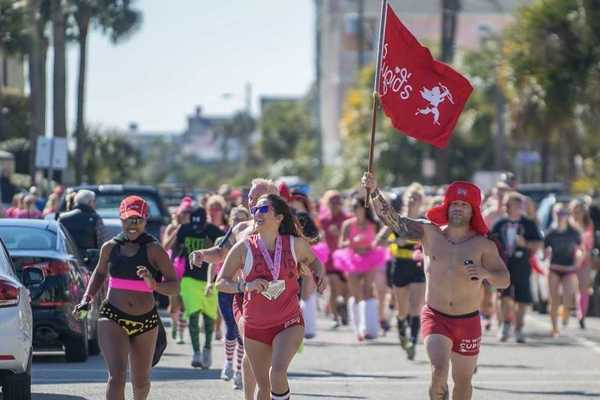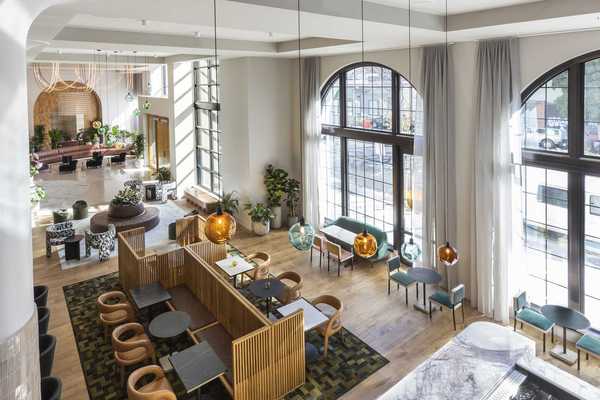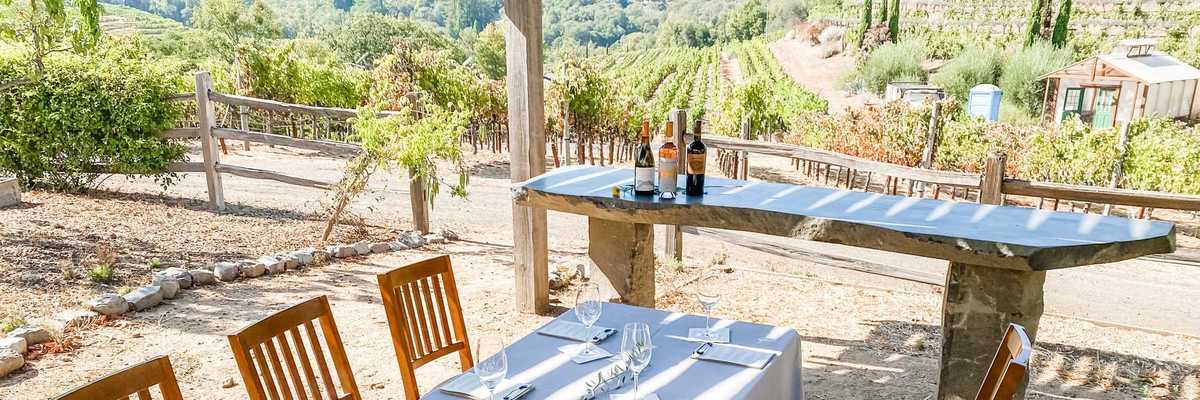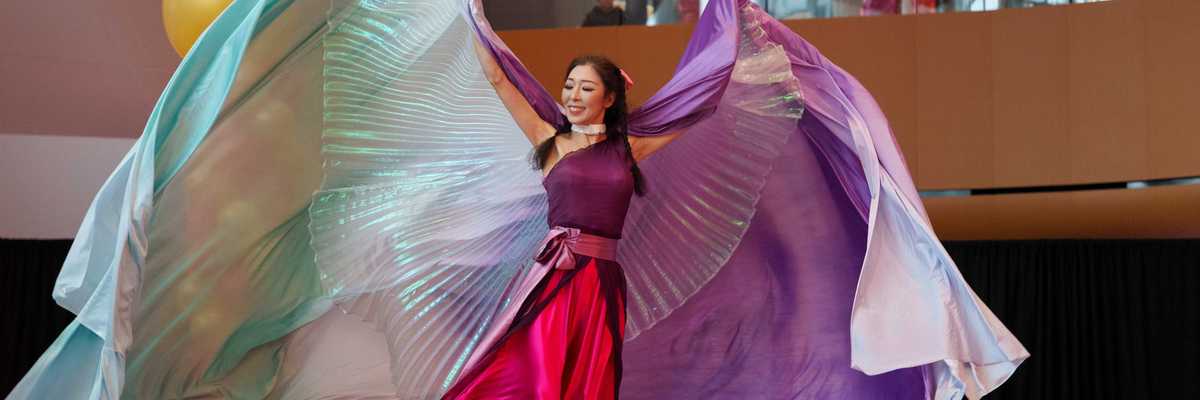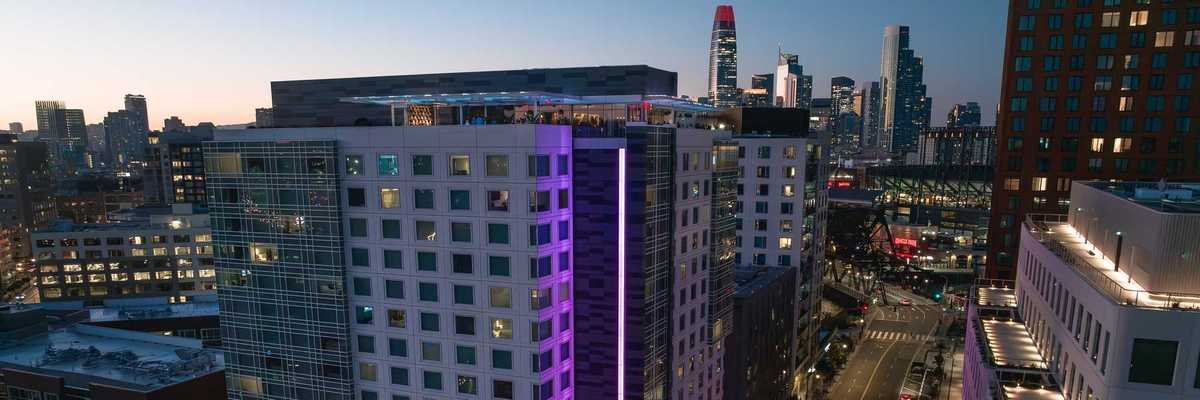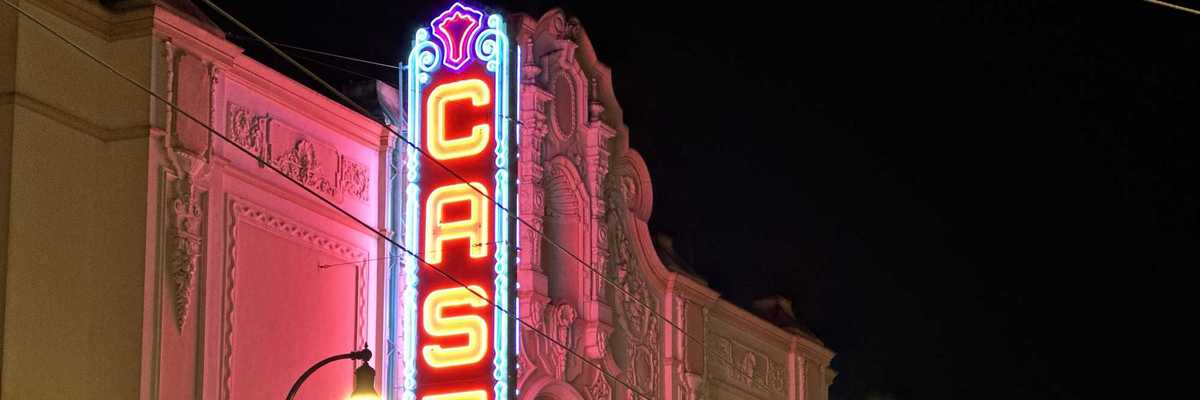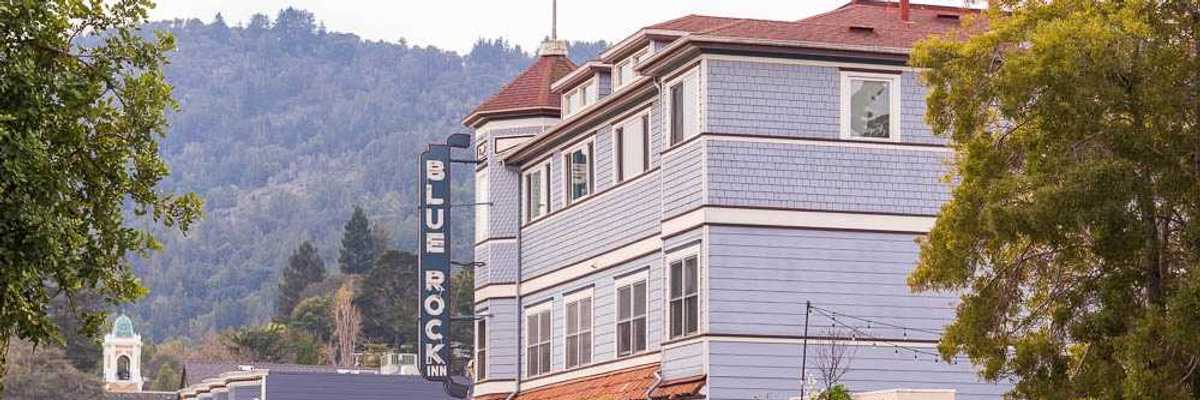Jonathan Lethem's best-known novels, Motherless Brooklyn and The Fortress of Solitude, took place in his native Brooklyn, but his new Chronic City shifts its setting to the more rarefied world of Manhattan. It's the story of Perkus Tooth, a pot-fueled music critic and pop-culture theorist, whose unlikely friendship with former child star Chase Insteadman takes the pair on a wild odyssey through the city. Lethem is a former Bay Area resident, and he'll appear in both San Francisco and Berkeley this week to read from the book. We spoke to him about reading aloud, the portrayal of marijuana in literature, and his favorite things to do in the area.
You've been reading the entirety of Chronic City aloud for several nights in New York-- you're currently about halfway through. Do you find new things in the book that you like, or don't like? Does it make it harder to read a pre-selected excerpt when you leave town?
Well, it's interesting. The reason I decided to do this was because I read the whole book aloud during the editing of it. I promised myself I was going to do that, because I had read my previous novel [You Don't Love Me Yet] as an audiobook-- I was the audiobook actor for it. With that, it was too late to make any changes, and I did discover stuff that I wanted to change. So I promised myself that with Chronic City, I was going to read it aloud while there was still time, and I did it last winter. There's nothing like trying to put something across to a listener, just having someone there in front of you who you're presenting to, to show you what's working and what isn't. So one of the reasons I feel such a great confidence in this book right now is because I spent the time doing that last winter. But it's also fun. Mainly, it's just kind of a special experience to read it aloud. I wouldn't want to knock my other readings, but there's sort of nothing like it...this is a voice I really like reading. In the bookstores I've visited outside of the New York marathon, though, I've been doing almost exclusively the first chapter so far. It's just really nice to introduce people to [narrator] Chase's voice, and to open the door of the book. So I don't have any complaints about it; it's a voice that I really like spending time with.
When you practiced reading the book aloud, before it came out, who did you read it to? To friends, to your editor, to yourself?
I got a group of people together. My wife and I go up to a small town in coastal Maine, and in mid-winter, in a snowed-in little town, you have a really good captive audience-- people who need excuses to get out of the house. We took over this tiny little library in east Blue Hill, and built a fire there on a series of successive nights, and had cookies and tea. I had a rotating group of 7 to 15 people who were there at different times. Sometimes people would leave before I was done, because it took a long time, but there were a couple of people who listened to the whole thing with me.
Some of the "science-fiction" ideas in your work feel like they could come true, like the "war-free" New York Times or the people who are paid to become temporary electronic sales drones. Are there any ideas you've dreamed up that you feel might come true in the near future, or have come true?
I can't remember now, but there was one really specific, totally mundane development in technology or computing, some kind of handheld device long ago, that I really did predict, and then it came true. But once that happens, it really doesn't belong to you anymore, so it seems really silly to even claim it. One of the things about Chronic City is that a lot of the things that seem weirdest in the book are actually not invented-- they're headlines, real moments in the life of the city in the last few years that I just grabbed onto. The strange chocolate smell that drifted over Manhattan. The nesting eagles, that was a real thing: the apartment building that got obsessed with these eagles that were nesting and trying to reproduce on their windowsill. Oddly enough, since I wrote the book, they started re-tunneling for the Second Avenue subway-- this sort of epic, unfinished project got started again, so the whole area where I set that part of the book is now torn up and there's just all this disastrous road blockage going on there.
An art dealer is selling old copies of your zine, "Idiot Tooth," online at $150 a pop. You write a lot about people searching for holy grails of pop culture-- a comic, a record. How do you feel about becoming one of those yourself?
It's really cool. My only job before I was a full-time author was working in used bookstores, and I love literary ephemera and weird, rare editions of things. The thing I like best about it is how indefinite the value is-- one person's scrap of garbage is someone else's thousand-dollar, plastic shrink-wrapped zine. It's the investment of the magical thinking of culture that makes anything special. I remember stapling those "Idiot Tooth" issues together, having huge piles of them in my house, wondering how I would ever get rid of them. The fact that they've come full circle, and they're these sort of intangibly valuable things, is really cool.
Pot is the catalyst for a lot of Perkus Tooth's theories-- though he also seems to be influenced by coffee and general craziness. Do you think pot deserves the bad reputation it's been assigned in popular culture, in terms of what it says about a character who smokes it and how it makes them behave?
[The book being considered a "stoner book"] surprises me, because as you point out, it might as well be called a coffee book, instead of a stoner novel. To me, it's a part of the real world, it's something people do. I've always tried to put drugs in my books in a naturalistic way, without letting them become supercharged as positive or negative symbols. It's part of the daily systems of a lot of people, and I've known plenty of people for whom it wasn't a symbolic choice, but just an everyday occurrence.
That said, what I love about marijuana, and what was so useful to me about the marijuana experience in this book, is that it kind of, in a really homely way that I like a lot, supercompresses the idea of revelation and revelatory thinking, and its collapse into disarray. In this book, I'm interested in the idea that one of the things people experience a lot is an inexpressible suspicion that life has more underneath its surface than they can ever get at, more than most people believe or want to believe. Marijuana is one of the ways, along with reading Slavoj Zizek or Friedrich Nietzsche, or watching John Carpenter movies, to express that feeling, to try to capture this glancing but urgent suspicion that real life is only a facade. But that feeling also collapses all the time, and real life is so mundane and powerful that it overtakes these esoteric feelings. When you smoke marijuana, you tend to go through that cycle in a really fast way: one hour of revelatory inklings, and then suddenly, the desperate need for a hamburger and a nap. The poignancy of it seems so appropriate to these characters. It's not that they're wrong to feel these things, but it can only take them so far, and then they're stuck back in the everyday, stuck back in their bodies and in society, which only values these inklings a very slight amount and mostly ignores them.
You lived in the Bay Area for ten years.
I did. It seems like a dream now.
Where did you live?
I almost always lived in Berkeley, and then a couple of times in Oakland, sort of on the border in Rockridge. I had a girlfriend who was on Guerrero St. for a long time, and I would spend the night there, so it sort of feels like I experienced living in the Mission in the 80s, back when that was a little more of an "edge" neighborhood.
What are some of your favorite things to do when you return?
I haven't been able to spend real time in the Bay Area for a while, and I miss that. A book tour is a strange thing-- particularly if you're going to a place where you have real connections, where you have friends and places where you used to live. It's sort of like you're the Pope, in that plastic bubble that they move the Pope around in. Your feet never quite touch the ground, and you're sort of there but not there. But the one thing I always make sure to do, and I'll be doing it on Thursday before my reading, is just spend some time browsing at Moe's. I miss that shop-- not just working there, but as a customer. I had a front-row seat; I used to get first dibs on all the great stuff that used to come across the counter there. So I'll spend some time just buying books. The Bay Area is still a very good bookstore area. Compared to most places, and certainly to New York City, there's just a wealth of good used bookstores to choose from. If I can get a moment, I'll also go back and try to get a burrito. There's that place on Valencia with the incredible carnitas burrito that I kind of pine for. I know that's a really stock answer, but it's the truth. And there are people-- people I miss. If I had more time, I think I would get up into the Berkeley hills and walk around, or try to get into a pickup basketball game somewhere. Those are the kinds of things I did when I had a very different life, long ago.
Whether it's intentional or not, you've become sort of a champion of Brooklyn, and of preserving its character. Do you feel like the Bay Area is also undergoing changes, and do you like them? How do these changes compare?
I wish I was qualified to really weigh in on that. It's sad that I have not been there enough lately, in a real way, where I would have smart things to say about that. Berkeley, apart from sudden, weird, disconcerting seismic things like Cody's closing up, often seems really pleasantly unchanged, like it's just been waiting for me, as-is, when I come back to it. But that's probably an illusion-- it's probably deeply changed, and I'm just telling myself a story.
Jonathan Lethem appears twice this week to promote Chronic City. On Wednesday, October 28th, at 8 pm, he'll appear in conversation at City Arts & Lectures at the Herbst Theatre, 401 Van Ness Ave., Civic Center. Tickets are $20. On Thursday, October 29th, at 7:30, he'll read and do a signing at Moe's Books, 2476 Telegraph Avenue, Berkeley. Admission is free.



